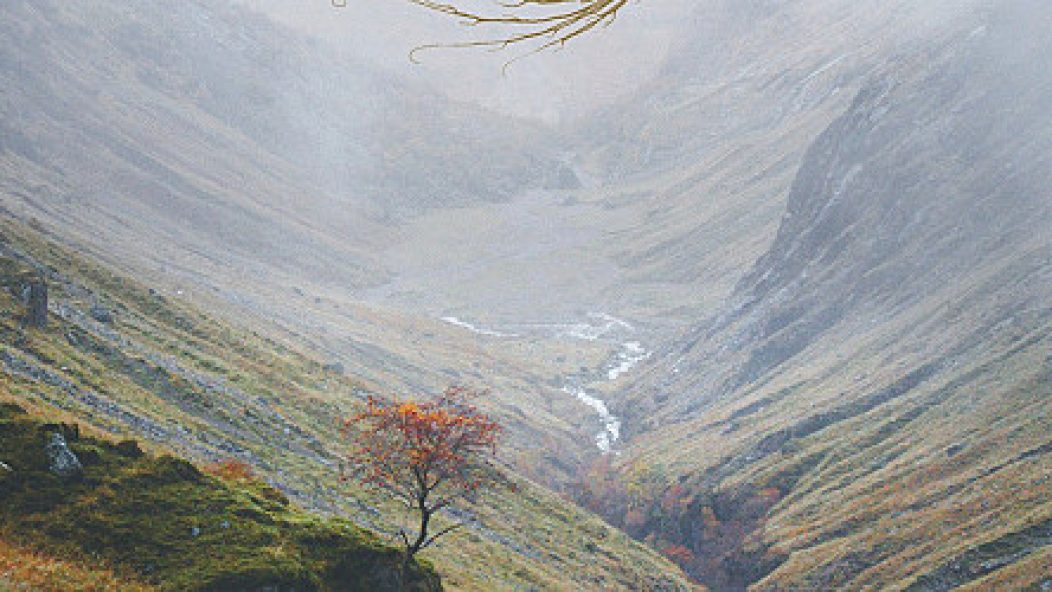
Top Albums of 2014, by Greg Majewski
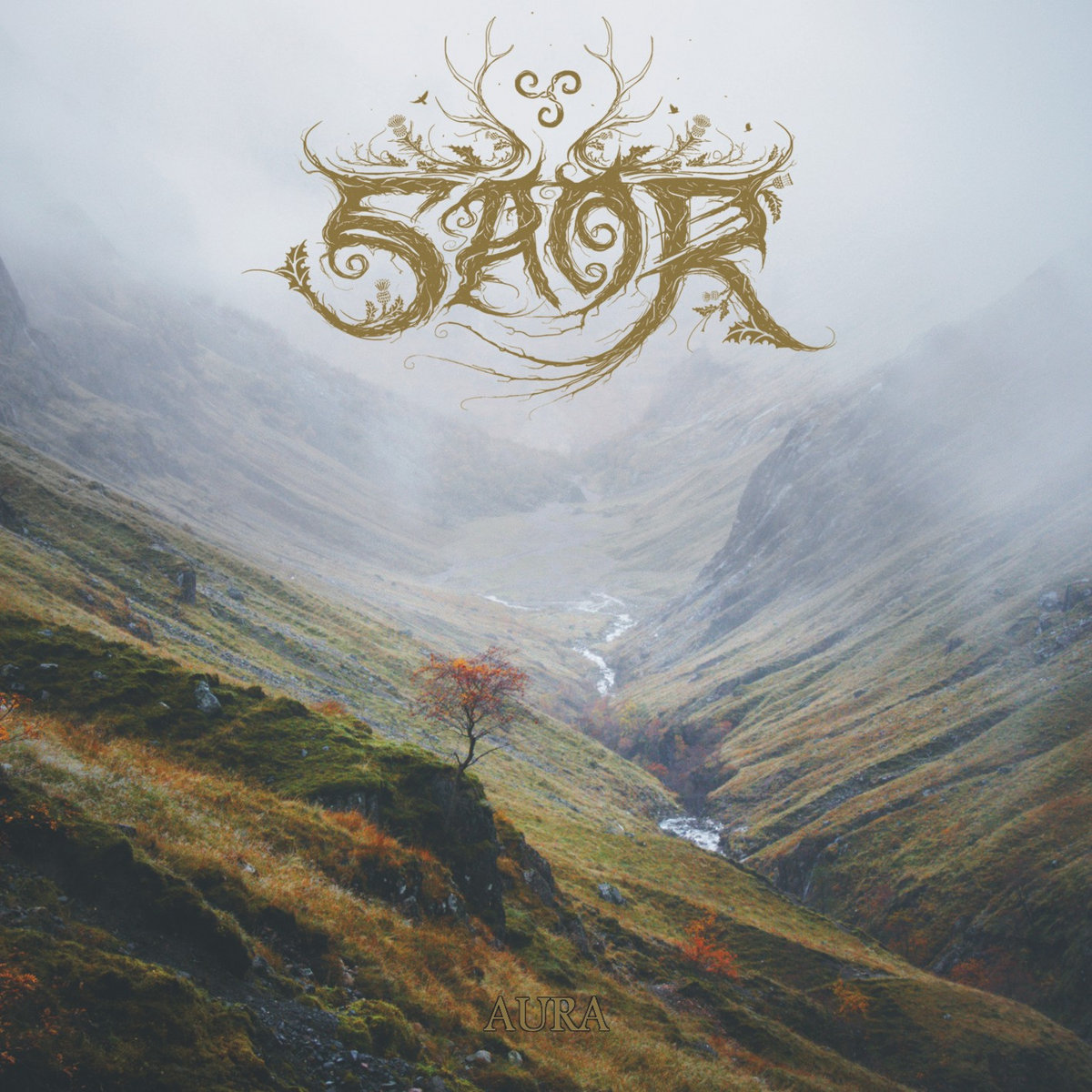
…
This time last year I made a resolution to listen to more music. The first half of 2013 was a time of change for me personally, as I settled into a new job in a new city and began living alone for the first time in, well, ever. It didn’t leave much time for checking out tunes, forcing me in the latter half of that year to frantically consume as much new stuff I had missed as possible. 2014 saw me get the hang of said job and even earn a mini-promotion (to quote George Steinbrenner in Seinfeld: “A lot more responsibility, not much more money”). It saw me familiarize myself with Portland and make a ton of new friends. 2014 is when I started putting my adult life together, and though I was busier than ever, I somehow dedicated more time than I had in 2013 to listening to new music. So much so that narrowing this list down was a damn difficult task. My top five is a pileup separated by the slimmest of margins. To make my final verdict, I asked myself one question: “What releases did I come back to the most to give me that soaring, goosebump-inducing, ‘Nothing else in this world matters except this album, right now’ feeling that only fantastic music can provide?” Because in the end, disregarding elitism or name-dropping, isn’t that all that matters?
…
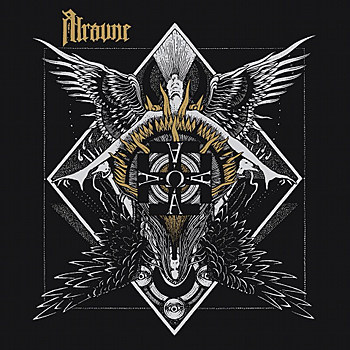
10. Alraune – The Process of Self-Immolation (Profound Lore)
Alraune’s full-length debut is the sort of album that only results from a small, close-knit scene like the one in Nashville. Bands from differing extreme genres play shows with one another, share members and begin to cross-pollinate. Drummer T. Coburn and guitarist Z. Allen come from Nashville sludge/hardcore bands Yautja (whose album Songs of Descent almost made this list) and Mourner, respectively. The influence from their extra-curricular projects imparts a gritty realism to The Process of Self-Immolation reminiscent of Brooklyn’s Woe and Chicago’s Krieg. Despite what the haunting requiems of “Prelude” and the outro of “Kissed By the Red” may suggest, this is urban black metal devoid of the mysticism common in the genre, the kind that comes from the equal parts isolation and clamor that city life offers. Coburn puts on a workmanlike performance, punctuating long sections of double bass blasts with d-beat stomp on the downright vicious “Exordium” and Aesop Dekker-esque snare fills on the climactic title track.
…
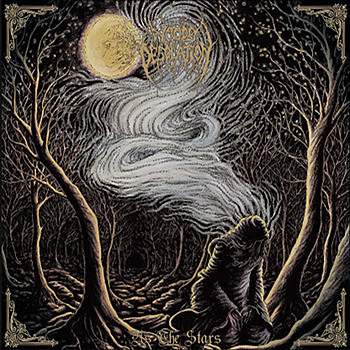
9. Woods of Desolation – As the Stars (Northern Silence Productions)
In a post-Sunbather world where anything with blast beats and washes of shoegaze guitar is immediately compared to Deafheaven, it’s easy to forget there are those who have been blending the styles for years. Woods of Desolation mainman D. is a lynchpin of the Australian black metal scene, having contributed to Austere’s underrated 2009 release To Lay Like Old Ashes and cranking out a steady schedule of releases as Woods of Desolation, including overlooked 2011 triumph Torn Beyond Reason. As the Stars is a masterpiece not because it reinvents “blackgaze,” but simply because it might very well the sub-genre’s zenith. We come into this expecting soaring, major key riffs, swift blast beats and aching vocals, and that is exactly what we get. And it is all executed perfectly—from the simple chord changes and mighty washes of tremolo of “Like Falling Leaves” to the Alcest-ian majesty of “Ad Infinitum.” Sometimes it’s appropriate to admire a work of art not for what it does to break new ground but for simply being the best at what it is.
…

8. Gridlink – Longhena (Handshake Inc.) [http://handshakeinc.bandcamp.com/album/longhena]
Did anyone not see this coming? There was no way a band that made music as volatile and sporadic as Gridlink would not bust apart in a glorious supernova of blast beats and banshee screeches. With most of its members spread across the US and guitarist Takafumi Matsubara in another country entirely, it was only a matter of time until Gridlink would call it quits. But what a hell of a swansong Longhena is; a blistering 21 minutes of intensity almost twice as long the band’s previous two LPs put together that is somehow has more riffs and blasts per second than either of its predecessors. While news of Gridlink’s disbanding was an unsurprising bummer, Matsubara’s quitting music altogether due to a brain infection was shocking. It’s a sobering reminder not only of how fortunate one can be to excel at something one enjoys doing, but also of the physical demands this music requires. Here’s to you, Mr. Matsubara. May future grindheads shake their heads in disbelief at your jangly hooks on “Talibas,” your suitably shiny tremolo and open chords rising above the chaos of “Island Sun” and your absolutely virtuosic performance on “Look to Windward.” You sent off this brief but brilliant band the only way you could: in a hail of alternate picking and lightning strike tremolo.
…
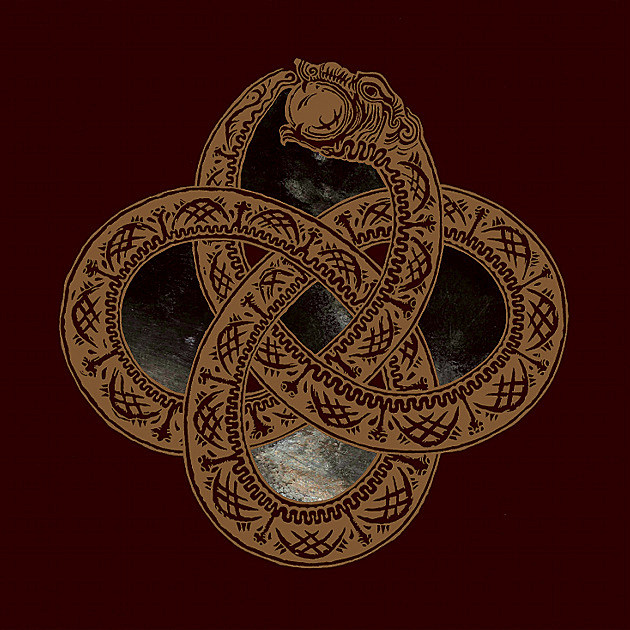
7. Agalloch – The Serpent and the Sphere (Profound Lore)
Disregard the fabricated “grey metal” tag and even the black metal label critics tried to hang on Agalloch in the wake of 2010 breakthrough Marrow of the Spirit. Over the course of their 17-year career, the Portland, Oregon, band has embodied progressive metal’s true essence: progress. Each record is a reaction to the one before it; a subtle shift in tone or lyrical themes here, a major change in production there. As Marrow was a departure from the crisp modern rock of its predecessor, so too is The Serpent and the Sphere an evolution from Marrow‘s much talked about analogue rawness. Having found a perfect muse in producer Billy Anderson on the Faustian Echoes EP, Agalloch has never sounded more confident or more free to experiment to their heart’s content as they do on Serpent, knowing Anderson’s ear would capture everything as it should be. Conceptually, the quartet departs from the terrestrial themes of albums past for the vast expanse of the cosmos, evoking the swirling dust clouds of nebulae on slow-burning opener “The Birth and Death of the Pillars of Creation” and the triumphant formation of galaxies in the mighty major key “Dark Matter Gods.” In their execution, Agalloch end Serpent with same cyclical completeness with which they’ve brought other albums to a close, as the instrumental “Plateau of the Ages” and acoustic outro “(serpens cauda)” end where the album began.
…
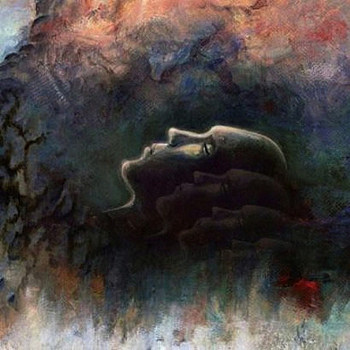
6. Morbus Chron – Sweven (Century Media)
The most inspiring thing about the crop of death metal bands to come around since the new decade is how they’ve melded the instrumental proficiency and progressive tendencies of mid-’00s technical death metal with the grit and primitivism of the New Wave of Old School Death Metal that came a few years later. Much like Tribulation did last year, fellow Swedes Morbus Chron also adopted the major aspect of the genre’s Golden Era (’87-’96) that made those bands so legendary: songwriting. What we remember about Leprosy and Altars of Madness isn’t how clean Chuck’s alternate picking was or how fast Pete Sandoval could blast; we remember the songs, the hooks, the fist shaking, gotta-rewind-that-one-part moments. Sweven is stacked with great individual pieces, like how “Towards a Dark Sky” hints at a haunting gothic theme throughout until it finally emerges, towering and punctuated by snare fills. But equally impressive is how said theme seamlessly falls away into “Aurora In the Offing,” and that song into the next. It is in its sequencing that Sweven makes it mark as an album instead of a collection of great moments, as incredible as they are.
…
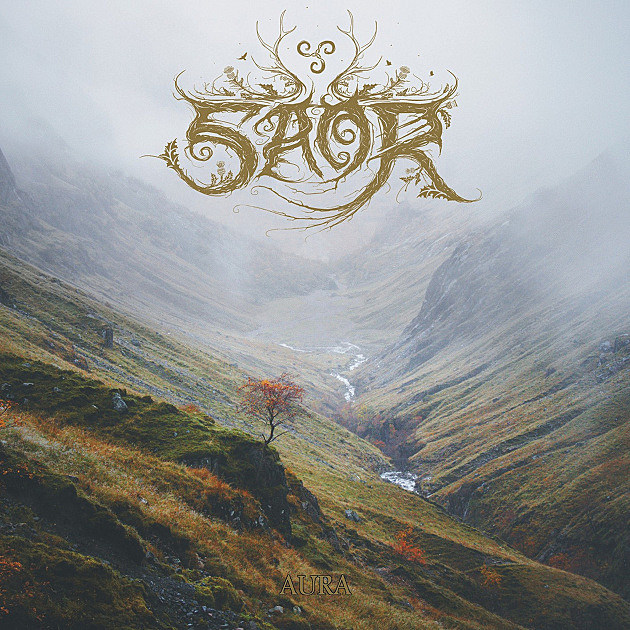
5. Saor – Aura (Northern Silence Productions)
Folk metal has primarily been the domain of European acts with weird instruments growling about getting hammered on mead and causing mischief with trolls, except for the small crew of bands in the UK melding traditional Celtic music with black metal fury. Primordial did it first, Cruachan followed and now Scotland’s Saor join this elite crew. There is something different about the way these bands fold in the indigenous music of their homelands than their Scandinavian counterparts. Yes, there is bombast and triumph, but these moments are laced with an inescapable melancholy. Scotland’s recent political history has been rocky, and it comes as no shock that Saor’s band name means “free” in Gaelic. Mainman Andy Marshall counters the forlorn melodies on songs like Aura with his gigantic bellow, while guest drummer Austin Lunn (Panopticon) plays out of his gourd like he does on every recording, filling the living crap out of everything in sight. It doesn’t get much mightier than “Pillars of the Earth,” where Marshall employs old school chugga chuggas over Lunn’s double bass rumble.
…
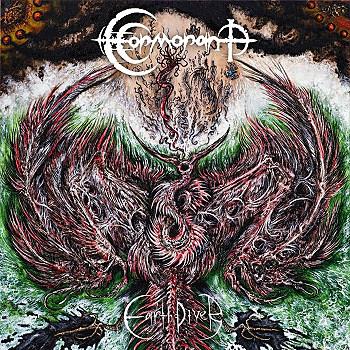
4. Cormorant – Earth Diver (Self-released)
I was nervous; I was skeptical; and I was extremely bummed out after Arthur von Nagel announced his departure from Cormorant I late 2012, just after the band seemed to be gaining momentum. He was a fantastic bassist and arguably the best lyricist in the genre in quite some time. Then the guys grabbed Marcus Luscombe from fellow Bay Area act Cloakwheel and dropped a few preview tracks early this year. And damn, they were good. Meaner, more boisterous, and more metal than its predecessor, Earth Diver is an exciting new chapter for a band I still do not hesitate to call one of the finest metal bands to come around this decade. The one-two punch of “The Pythia” and “Waking Sleep” are great places to pick up the band’s evolving sound, with Matt Solis earning a more prominent role in his clean vocals hooks, but “Sold As a Crow”—with its mournful tremolo and incessant blasting—might be the best song in the band’s impressive catalogue.
…
![]()
3. Panopticon – Roads to the North (Bindrune Recordings)
The great philosopher Ron Swanson once said, “Never half-ass two things; whole-ass one thing.” Austin Lunn takes those words a step further and whole-asses everything. As a session musician, he is stellar—see his drum performances both on the number five album on this list and on the predecessor of the album at the top spot. With his own projects Seidr and Panopticon, he crafts massively ambitious albums spanning multiple genres and regularly stretching well past the one hour mark. Hell, before he founded HammerHeart Brewing Company with his brother-in-law, Lunn traveled to Norway to hone the craft of Norse brewing. Lunn’s journey to the international hub of black metal and his subsequent move from his beloved Kentucky to Minnesota—as well as the birth of his first child—were all the inspiration he needed to craft Roads to the North. You can hear his joy at his son’s birth on the downright ebullient melodeath bounce of “Where the Mountains Pierce the Sky,” countered by the reluctance to uproot from his home state in the somber “The Long Road Part 1: One Last Fire.” There is deep nostalgia in bluegrass ballad “Norwegian Nights,” as Lunn croons “The woods and the hills / And faces so dear to me / From frozen lakes and flatland snow / Where I’m called I’ll go.” It’s the way Lunn throws himself headlong into every project—whether it’s crafting outstanding beer, hiking the wilderness with his wife and child or learning any instrument he can get his hands on—that makes him such an admirable person as well as a stellar musician. Roads to the North solidifies Lunn’s status as a true American treasure.
…

2. A Pregnant Light – My Game Doesn’t Have a Name (Colloquial Sound Recordings)
In the first year of its existence, A Pregnant Light was relegated to the metal blog community as an obscure, one-man black metal band. Then in 2012 its founder Damian Master coined the term “purple metal,” and in 2013 he dropped the Deathless Maranatha pseudonym and established a steady public persona via increasingly personal interviews and a candid, effusive Twitter account. On APL’s debut full-length My Game Doesn’t Have a Name, Master might have even dodged his own self-ascribed genre. His style has become something completely unclassifiable both by conventional descriptors and newly coined ones. The infectious post-punk-riffs-meet-black-metal-tremolo melodies and impeccable songwriting of past EPs and splits are present as ever on “Dream Addict” and the catchy Johnny Marr leads on “Fresh Flower Offering (Purple Night).” But there’s a newfound sense of urgency to these songs, the awareness of one’s finite existence brought on by Master’s spinal surgery last year and near-death experience during the operation. “I am young, I am proud, I am running out of time,” he shouts on opener “Unreachable Arc.” Let’s hope Master has some time longer before drifting into the purple light, as he’s currently creating some of the most strikingly original music today.
…
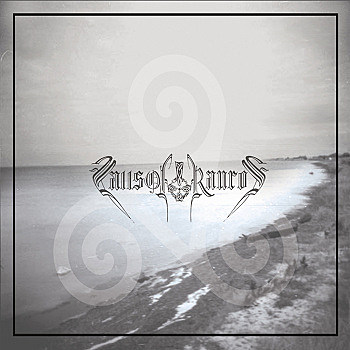
1. Falls of Rauros – Believe In No Coming Shore (Bindrune Recordings)
Believe In No Coming Shore is not a perfect album; its production is rough around the edges, some of its transitions are sudden and unblended and it takes a few songs to really hit its stride. Then why is it my favorite album of the year? Why do I keep coming back to it, at least every other day—if not everyday—since its October release? The answer is partly in the penultimate sentence of my foreword to this list, regarding specific moments that stop us as music enthusiasts in our tracks, that make us sit in our car after arriving home from our evening commute just to hear the end of a 10-minute song. It’s also found in the aforementioned heart of Believe. When Falls of Rauros are on, they are world-beating songwriters capable of crafting winding compositions, deftly operating a dizzying array of moving parts, developing a theme in one segment then subtly shifting it in new variations later in the same song or even later in the album. The three-track suite of “Ancestors of Smoke,” “Waxen Voices” and “Spectral Eyes” is the finest set of songs I’ve heard since the three that comprised my 2014 AOTY, A Pregnant Light’s Domination Harmony. But it’s “Waxen Voices” in particular that is my favorite song this year, a flawless clinic in how to build a song from a simple melody to a seemingly improvised jam session, steadily winding the tension until it erupts in a flurry of martial-inflected jazz drumming and winding leads, then pushing the tempo further as rollicking double bass drives desperate tremolo lines. Then it all screeches to a halt amid bell-driven backbeat and drifts away upon a lilting solo as swift as a coastal breeze through the pine and birch trees of the band’s native Portland, Maine. If this is what Falls of Rauros are capable of when they put it all together, American metal has truly reached a Golden Age.
…











